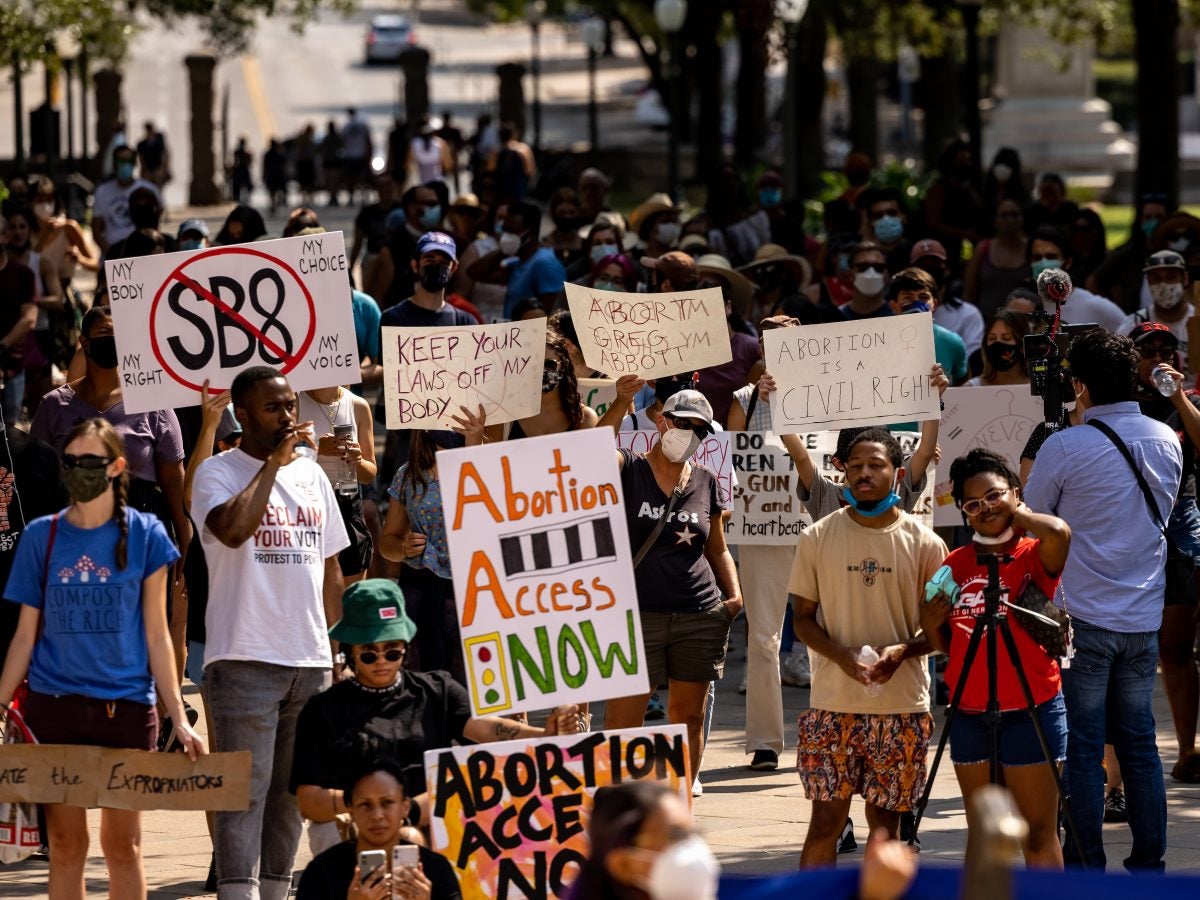
Texas’ near-total abortion ban has raised the flags when it comes to issues of reproductive rights in this country.
Now, according to the Texas Tribune, a substantial update to the court case has wide-reaching ramifications for abortion law. The U.S. Supreme Court is considering whether to leapfrog a federal appellate court to take up abortion providers’ challenge to the ban and hear arguments from both sides.
Monday, Oct. 18, the justices of the Supreme Court agreed to expedite providers’ request that the justices consider the case. The state of Texas, which is listed as one of the defendants in the suit, has until Thursday to respond to the petition asking that the case be fast-tracked. Citing procedural reasons for the decision to block Texas’ new abortion restrictions from going into effect, which came in a 5-4 vote, the court did not weigh in on the law’s constitutionality.
Texas Senate Bill 8, which bans abortions after an embryo’s cardiac activity is detected, allows anyone who “aids or abets” such an abortion to be sued. Enforcement would depend on private citizens, rather than state officials, and serves as a controversial loophole that has led to providers ceasing to offer the procedure altogether out of fear of litigation.
Both sides and many people in the country are on opposite sides of the issue, as each lawsuit challenges the law’s constitutionality via different arguments.
Melissa Murray, a professor at the New York University School of Law, said it will be important for the Supreme Court to decide if Texas is in “utter defiance” of Roe v. Wade.
“It really is sort of a broader existential question about does the federal government have a role to play when states utterly defy existing Supreme Court precedent and constitutional law?” Murray said.
The Justice Department’s request to challenge the law comes after a series of federal court decisions flip-flopped on whether it should remain in effect as its constitutionality is being challenged.
Last Thursday, Oct. 14, the law was ordered to remain in place by a panel of federal appellate judges. That decision came after a U.S. district court blocked the law for just two days until the 5th U.S. Circuit Court of Appeals placed a halt on the order.
“Texas has, in short, successfully nullified this Court’s decisions within its borders,” the Justice Department wrote as arguing Texas crafted an “unprecedented” structure to thwart the courts.